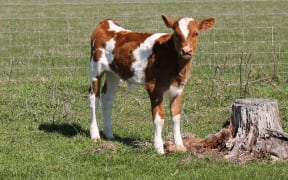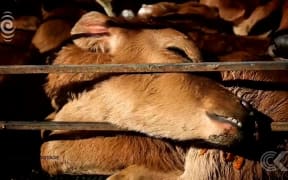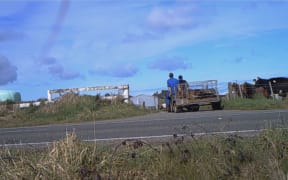At least 600 of Taranaki dairy farmers won't comply with the new bobby calf laws by 1 August, because they have not had enough information on the changes, says Federated Farmers.
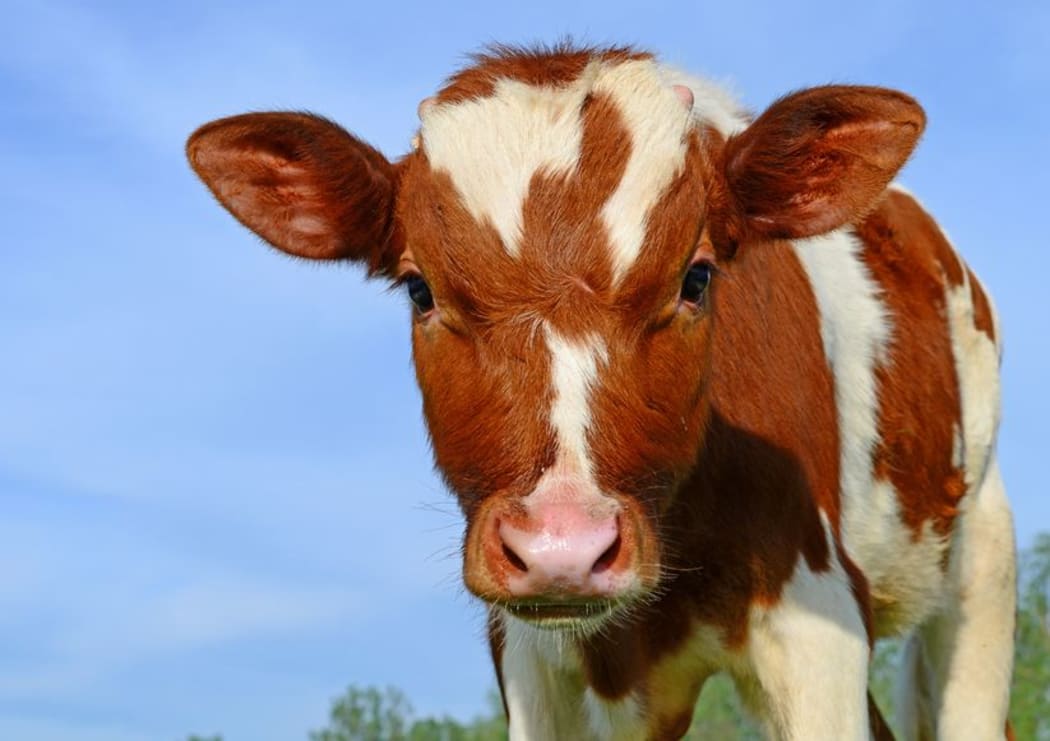
Bobby calf Photo: 123RF
The Ministry for Primary Industries introduced stricter regulations for caring for and transporting bobby calves, after Farmwatch filmed several cases of bobby calf abuse in the past year.
By the 1 August deadline, dairy farmers have to provide shelter for young calves before and during transportation, and have loading and unloading facilities so the calves could walk onto a truck instead of being lifted.
Federated Farmers dairy group vice chair Janet Schultz has been running bobby calf regulation workshops in the Taranaki region with farmers, DairyNZ, MPI, trucking companies and bobby calf processors.
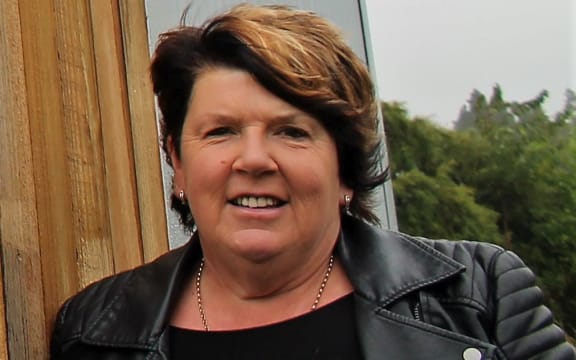
Federated Farmers dairy group vice chair Janet Schultz. Photo: Supplied
Ms Schultz said many farmers did not know that changes would be law in August, and this was a problem because there would not be enough builders to make the holding pens in time.
She said in Taranaki alone there were 1700 to 1800 dairy farmers that supply Fonterra.
"I'm being really kind here, there might already be 500 that comply that still leaves 1200 farmers that don't comply. Of those 1200 farmers I'm saying maybe 600 of them can do their own pens or have a facility they can use.
"It still leaves 500 to 600 pens that need to be built in Taranaki alone by 1st of August, that is just not possible."
Ms Schultz said she approached MPI about her concerns.
"Their reply back was 'this is law come the first of August', that's the only response we've had."
There needs to be clearer communication with farmers, she said.
"I personally think that it has been handled poorly and it needs to be brought out more into the open to make farmers more aware."
Ms Schultz said she doubted many farmers were aware that the requirements are law from 1 August, and despite DairyNZ talking to farmers at workshops, there would still be many who were too busy to attend and did not read the MPI website for information.
"MPI is one of the firms that did the rules so MPI, I feel, should have more information."
At the roadshows held in Taranaki, it was good to see MPI officials asking about how best to get information to farmers, said Ms Schultz.
She said for farmers who were not sure what the requirements were for compliance should ask their trucking and procurement companies, who would visit the farm to see what did and did not comply.
The pens to shelter the calves cost from $3000 to $7000 and had to meet certain requirements, depending on who the farmer supplied milk to. This was a cost for the landowner, not the sharemilker, said Ms Schultz.
'We can't reach every individual'
MPI director of animal and animal products Paul Dansted said the Ministry had worked with people across the bobby calf supply chain.
"We've worked with Federated Farmers, DairyNZ and dairy companies. We've worked with transport operators and meat processing companies and vets.
"There's actually been really good reach-out to farmers and we've got good feedback from them."
When asked about more remote farmers who might not have internet or attend industry meetings, Mr Dansted said the Ministry tried its best.
"We can't reach every individual. But this is a journey we're on, we're still trying to get that message out there, particularly before the spring calving and we'll continue to do that."
The Ministry wanted to reach and inform as many people as possible about the bobby calf requirements, said Mr Dansted.
"We're active at field days, workshops around the country and we provide training material. There's rural publications, newspapers and goodness knows what - there are all sorts of resources out there.
"We invite people to contact us directly if they need to.'
Mr Dansted did not specify what the penalties were for farmers who did not comply with the law - and what the Ministry would do to check people were complying - but said MPI would ensure animals were being cared for properly.
"If people have concerns we'll want to work with them so they know what they need to do, and (we'll) make sure the animals are being looked after."

